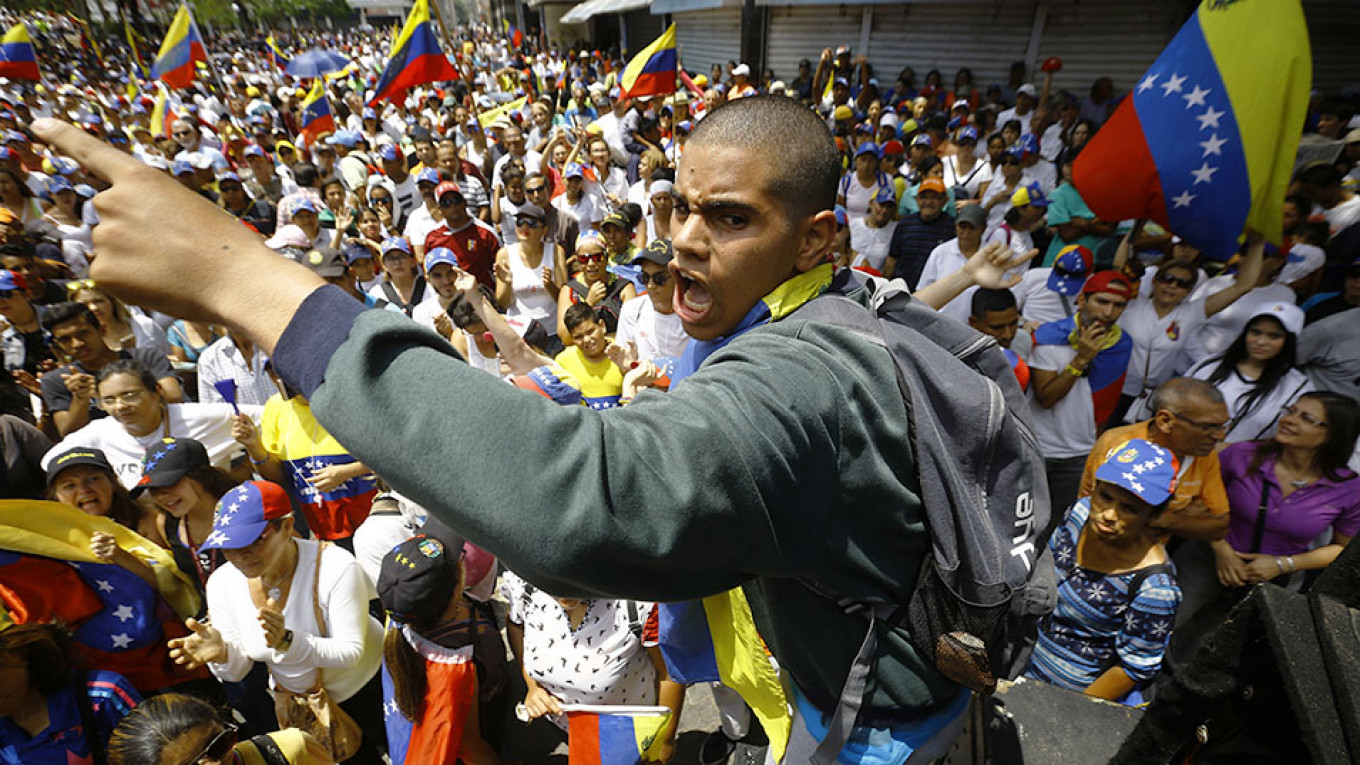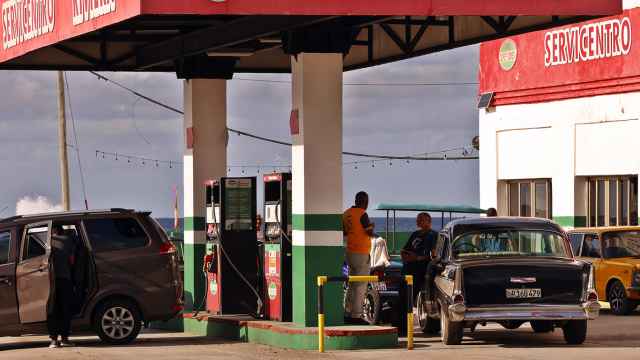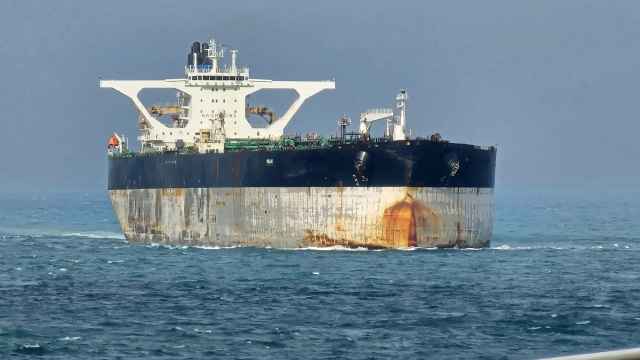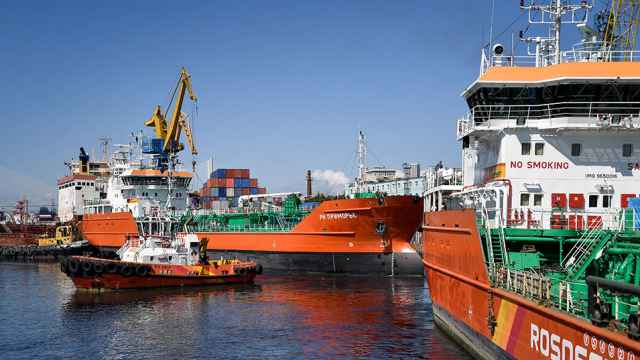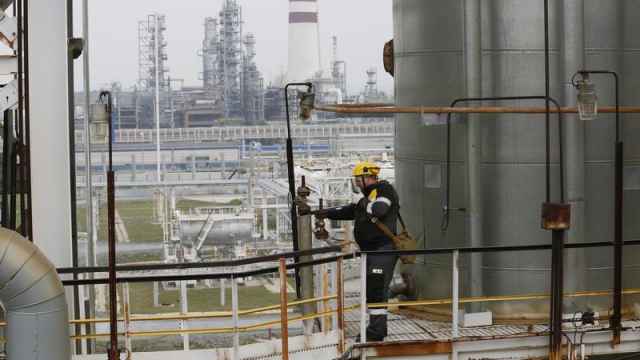U.S. Secretary of State Mike Pompeo on Monday blamed Russia and Cuba for causing Venezuela's political crisis by supporting President Nicolas Maduro.
His comments came after the U.S. Treasury Department imposed sanctions on Russian bank Evrofinance Mosnarbank for helping Venezuelan state oil firm PDVSA evade U.S. financial restrictions.
"This story is not complete without acknowledging the central role Cuba and Russia have played and continue to play in undermining the democratic dreams of the Venezuelan people and their welfare," Pompeo told reporters.
"Moscow, like Havana, continues to provide political cover to the Maduro regime, while pressuring countries to disregard the democratic legitimacy of the interim president Guaido," he added.
The Trump administration has taken several steps in recent weeks to ratchet up pressure on Maduro and bolster Venezuelan opposition leader Juan Guaido, recognized by the United States and more than 50 other countries as interim president.
However, Maduro, who has accused Guaido of a U.S.-directed coup attempt, retains the backing of Russia and China as well as control of state institutions including the military.
Earlier, the U.S. Treasury said all U.S. assets of Evrofinance, described as jointly owned by Russian and Venezuelan state-owned companies, would be frozen and U.S. citizens prohibited from doing business with it.
Pompeo said Russian oil giant Rosneft was also defying U.S. sanctions by buying oil from PDVSA, which was sanctioned in January.
"Russia's state-owned company, Rosneft, continues to purchase crude oil cargoes from PDVSA, Venezuela's state-owned oil company, in defiance of U.S. sanctions. And, Rosneft's CEO, Igor Sechin, continues to throw a lifeline to the regime," he said.
Washington has called on foreign banks to ensure that Maduro and Venezuelan government officials are not hiding financial assets abroad.
"Bankers: Do not help Maduro and his accomplices steal the assets of the Venezuelan people," U.S. national security adviser John Bolton wrote in a message on Twitter on Monday. "The United States is watching. The world is watching. The Venezuelan people are watching."
Evrofinance was set up in 2011 with Venezuela's National Development Fund, commonly known as FONDEN, taking a 49 percent stake in the bank, the Treasury Department said.
Russia’s Gazprombank and the Russian state bank VTB Bank each took a 25 percent interest in Evrofinance, which was founded as a bi-national bank to fund joint Russia-Venezuela oil and infrastructure projects, the department said.
Evrofinance was the primary international financial bank that helped finance a Venezuelan crypto-currency, the petro, which launched last year in an attempt to "circumvent" U.S. sanctions, the Treasury Department said.
Evrofinance said in a statement on its website that it was operating in a "stable manner" and will "fulfill all of its obligations towards clients and partners.”
Gazprombank, which is Russia’s third biggest lender by assets and includes among its shareholders Russian state gas company Gazprom, said in a statement that the U.S. Treasury decision would not affect it.
“Gazprombank has a minority stake in Evrofinance Mosnarbank,” Gazprombank said. “Gazprombank does not carry out operations on the accounts of companies that are sanctioned by the U.S. over Venezuela.”
A Message from The Moscow Times:
Dear readers,
We are facing unprecedented challenges. Russia's Prosecutor General's Office has designated The Moscow Times as an "undesirable" organization, criminalizing our work and putting our staff at risk of prosecution. This follows our earlier unjust labeling as a "foreign agent."
These actions are direct attempts to silence independent journalism in Russia. The authorities claim our work "discredits the decisions of the Russian leadership." We see things differently: we strive to provide accurate, unbiased reporting on Russia.
We, the journalists of The Moscow Times, refuse to be silenced. But to continue our work, we need your help.
Your support, no matter how small, makes a world of difference. If you can, please support us monthly starting from just $2. It's quick to set up, and every contribution makes a significant impact.
By supporting The Moscow Times, you're defending open, independent journalism in the face of repression. Thank you for standing with us.
Remind me later.



